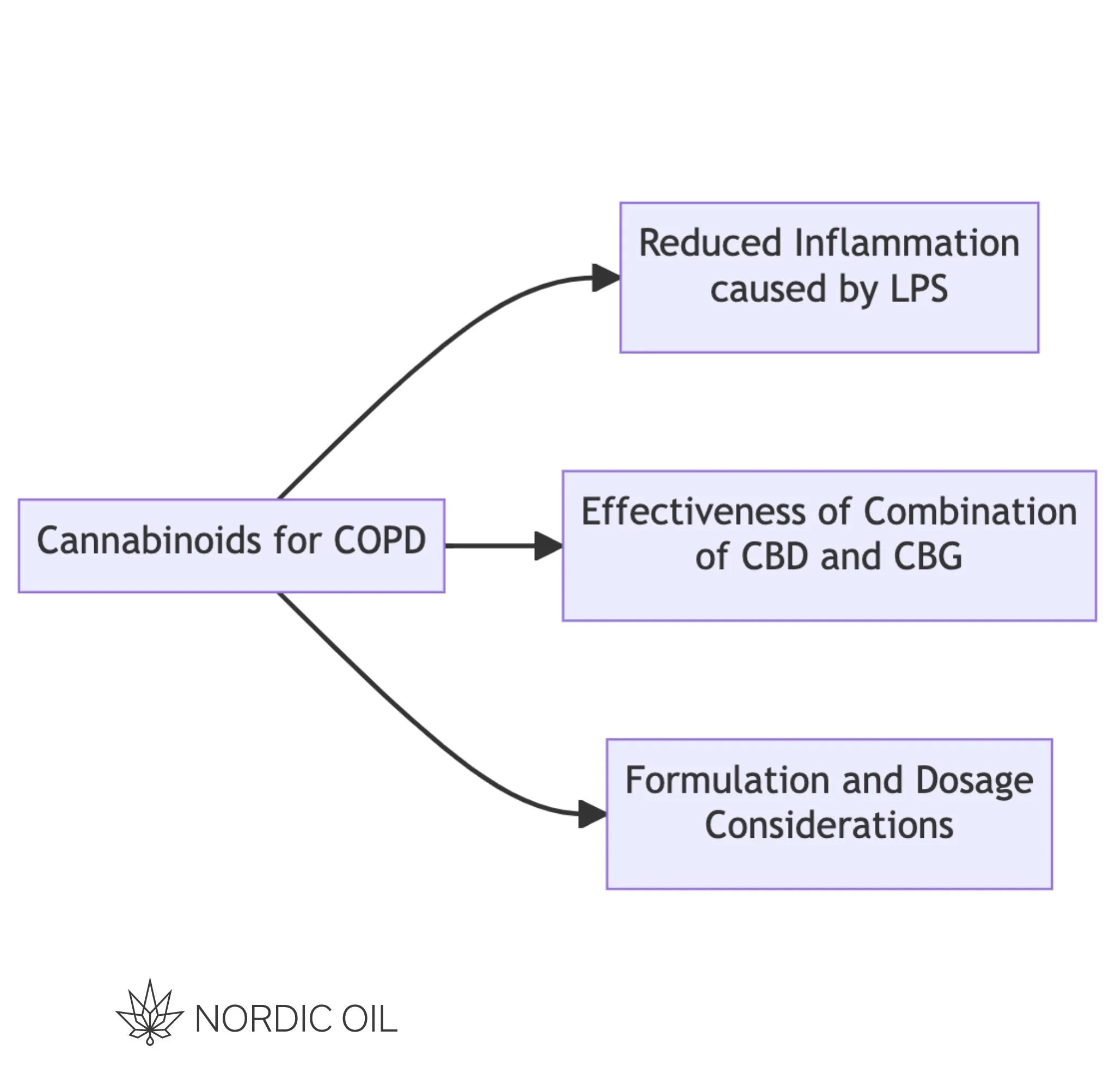Chronic Obstructive Pulmonary Disease (COPD) is a chronic respiratory disease that affects millions of people worldwide. It is characterized by inflammation in the lungs, leading to difficulty in breathing. A recent study conducted by A. Dudášová, L. Robaina Cabrera, M. Belvisi, and M. Birrell, published in Pulmonary Pharmacology & Therapeutics, explored the potential of cannabinoids, specifically cannabidiol (CBD) and cannabigerol (CBG), in reducing this inflammation.
The study was conducted on guinea pigs, which were exposed to a bacterial compound called lipopolysaccharide (LPS) to induce a condition similar to COPD. The animals were then treated with CBD and CBG, either alone or in combination, and their responses were observed.
The main findings of the study include:
- CBD and CBG significantly reduced the inflammation caused by LPS.
- The combination of CBD and CBG was more effective than either compound alone.
- The formulation of the cannabinoids was crucial for their effectiveness.
The researchers used a specific methodology to ensure the accuracy of their results. They first induced inflammation in the guinea pigs using LPS. After 4 hours, they collected fluid from the animals' lungs to analyze the number of inflammatory cells present. The animals were then treated with CBD and CBG, and the fluid analysis was repeated.
The cannabinoids were administered in two different formulations: one with medium-chain triglycerides (MCTs) and another with a micellar solution composed of ethanol, Cremophor® EL, and saline. The researchers found that the formulation significantly affected the effectiveness of the cannabinoids, with the micellar solution proving to be more effective.
The potential implications of this study are vast. If cannabinoids can effectively reduce inflammation in COPD patients, they could provide a new treatment option for this debilitating disease. However, the study also highlighted some limitations. For instance, the study was conducted on animals, and human trials are needed to confirm the results. Additionally, the optimal dosage and formulation of the cannabinoids need to be determined.
In conclusion, the study provides promising evidence for the use of cannabinoids in treating COPD. However, further research is needed to fully understand their potential.

